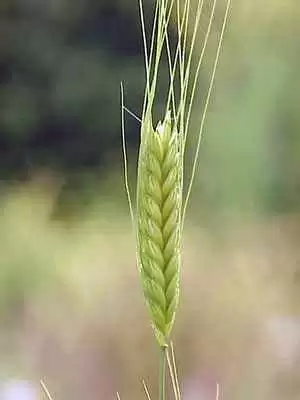
Celiac.com 12/03/2010 - An interesting finding regarding corn from a research team based in Sweden that studied the effects of both gluten and corn on patients with celiac disease.
The research team included G. Kristjánsson, M. Högman, P. Venge, R. and Hällgren, who are affiliated variously with the Department of Gastroenterology, the Department of Medical Cell Biology, Section of Integrative Physiology, the Laboratory for Inflammation Research, and the Department of Rheumatology at Uppsala University Hospital in Uppsala, Sweden.
Celiac.com Sponsor (A12):
Specifically, the team sought to better understand the facets of nitric oxide (NO) production induced by rectal gluten challenge and the relationship between nitric oxide production and mucosal granulocyte activation.
The team measured the release of rectal nitric oxide in 13 patients with celiac disease and in 18 control subjects. The team measured levels both before and after rectal wheat gluten challenge.
To collect the gas, the team used a rectal balloon and a newly developed instrument, which allows simultaneous measurements of concentrations of granulocyte mediators in the rectal mucosa. This new technique is called the “mucosal patch technique”.
The technique allowed the team to measure myeloperoxidase (MPO), eosinophil cationic protein (ECP), and histamine.
They found that concentrations of rectal nitric oxide increased in ALL celiac patients after wheat gluten challenge, peaking at 15 hours (average concentrations of 9464 (SEM 2393) parts per billion (ppb), with a range of 250–24982 ppb.
The maximum MPO and ECP increase occurred five hours after challenge. At the fifteen hour mark, the team observed a correlation between mucosal MPO and nitric oxide production.
They then compared their results against measurements taken after corn gluten challenge. Six of the celiac patients showed an increase in nitric oxide production 15 hours after rectal corn gluten challenge, though much smaller than after gluten challenge. The control group showed no increases after either challenge.
The main findings showed that mucosal activation of neutrophils and eosinophils precedes pronounced enhancement of mucosal nitric oxide production after rectal wheat gluten challenge in patients with celiac disease.
The researchers also found that some patients with celiac disease show signs of an inflammatory reaction after rectal corn gluten challenge, shown by increased nitric oxide production and activation of granulocyte markers.
The fact that nearly half of the celiac patients in this small sample showed increases in nitric oxide production after a corn challenge is definitely interesting, and calls out for further study.
Source:
- Open Original Shared Link
In this study the researchers discovered that the cornmeal they tested was contaminated with wheat. Please revise this blog entry to reflect the flaw in the study.
"The manufacturer claimed that their corn product was free from wheat or other cereals. We tested the product at the Swedish National Food Administration (Livsmedelsverket) and it was found to be contaminated with 82 μg/g (ppm), which is less than the usual allowed amount in a gluten free diet (<200 ppm) according to the Codex Alimentarius Standard for gluten free foods, and far less than what has been found to be a safe amount of gluten contamination when correlated with histology in oral challenge studies. It cannot be excluded that the small amounts of gluten present in the corn preparation induced an inflammatory reaction as the mucosal patch technique is very sensitive. "






Recommended Comments